£0.00
0Best Castors for Outside use
Not using the correct castors in an outside environment could cause serious problems.
Castors are used outdoors for a vast variety of purposes such as moving furniture, garden and sports equipment, gantry trolleys, industrial bins and other everyday outdoor equipment. They obviously make it easier to move such items around and especially objects that are too large or heavy to lift safely.
So, attaching castors to these objects is helpful – but only if they are the correct types of castors. Not using the right castors in an outside environment could cause serious problems and pose a danger to operators and materials handlers.
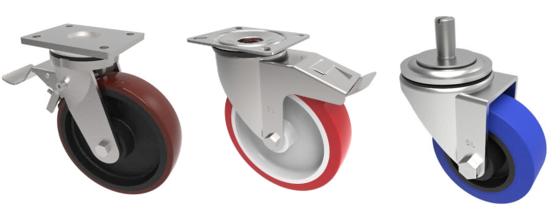
BIL’s castors perform well outdoors because they are made of high-quality materials that are durable and weather resistant. The castors also have a protective coating that helps to prevent them from rusting or corroding. However, there are several important factors that should be taken into consideration when selecting the best castors for your outdoor applications, including:
The weight of the load to be moved.
Castors have varying load ratings depending on their style and the material they are made from. Each castor is designed to support a maximum load weight and it is vital to stay within the limits to avoid damage to the castor or the load.
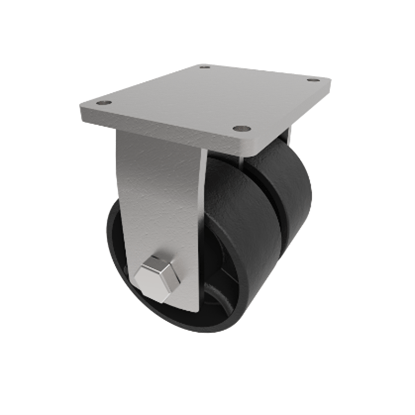
To work out the load rating required for each castor – simply divide the fully loaded, total weight of the equipment to be moved, by the number of castors you will use. This will give a maximum load rating for each castor. Ideally though, you should choose a castor with a higher load capacity in case you encounter uneven ground which could put extra loading on individual castors. Please see our Castors Load Calculations Guide for more details on how to calculate the load rating for different configurations of castors.
The environmental conditions that the castors will be used in
Temperature is a key consideration here.
The different materials that castors are made from vary in their temperature resistance. If your castors are going to be used in more extreme high-temperature or low-temperature environments, you will need to select suitable castors, ensuring that they are designed to handle any temperature fluctuations.
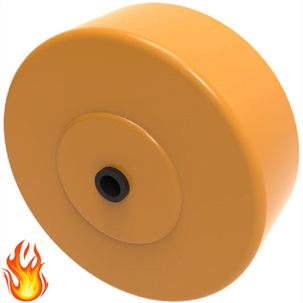
We supply castors that are specifically designed to be used in temperatures from -40° up to +400° (See high temperature castors).
The surface that the castors will be used on.
Are your castors going to be used on rough, smooth, hard or soft surfaces? Will they be used on concrete or grass or both?
You need to select a castor with a suitable type of wheel for safe, effective use on outside surfaces. You have the following main choices;
Rubber: Rubber provides good traction on a variety of surfaces, including concrete, asphalt, and grass. Rubber castors are also relatively quiet, making them a good choice for use in areas where noise is a concern.
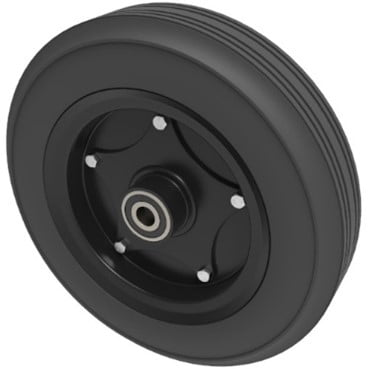
Polyurethane: Polyurethane – a synthetic material that is similar to rubber in terms of its properties – is also a good choice for outdoor use. It is durable and resistant to wear and tear. Polyurethane castors are often used on outdoor furniture for example.
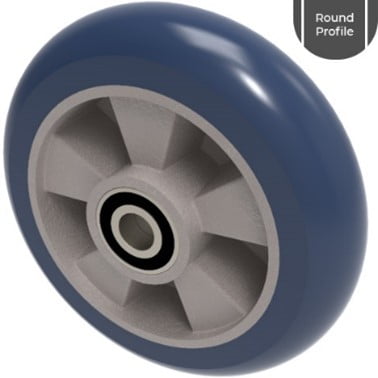
Pneumatic: These tyres are filled with air, making them a good choice for use on uneven, rough surfaces. The pneumatic tyre gives a smoother ride, absorbing the impact of bumps and is much less likely to sink into soft surfaces – like lawns and verges.
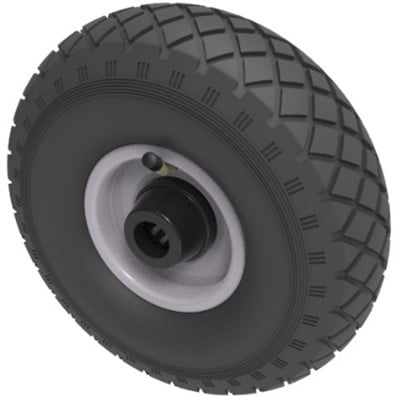
Steel castors: These are the most durable type of outdoor castor as steel is such a strong material. Steel castors are often used on heavy-duty equipment, such as carts and trailers.
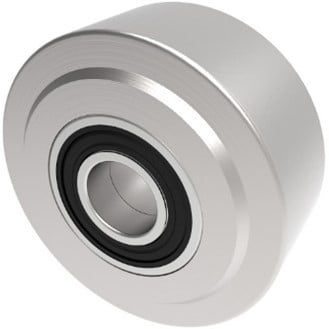
The filters on the Castors product pages of our website will allow you to select the castor material you wish to use and to quickly see the castors that will suit your requirements or use our quick guide to selecting Castors and Wheels.
Wheel size should be considered
The manoeuvrability of the castor is affected by the wheel size, so it is important to consider this before selecting your castor. For example, larger wheels are easier to move over rough surfaces but they can be more difficult to manoeuvre if space is limited.
Other factors that need to be considered when choosing your castors for use outside are;
- the type of fixing plate,
- the type of bolt hole,
- whether you want swivel castors,
- whether you need a brake.
If you are unsure about the best castor wheels to use for your application, you can gain more information from our easy, quick guide to selecting Castors and Wheels.
Alternatively, simply contact us. Our experienced team are always happy to offer you friendly expert advice and guidance. Call them on 01249 822 222 or email them at sales@bilgroup.co.uk
